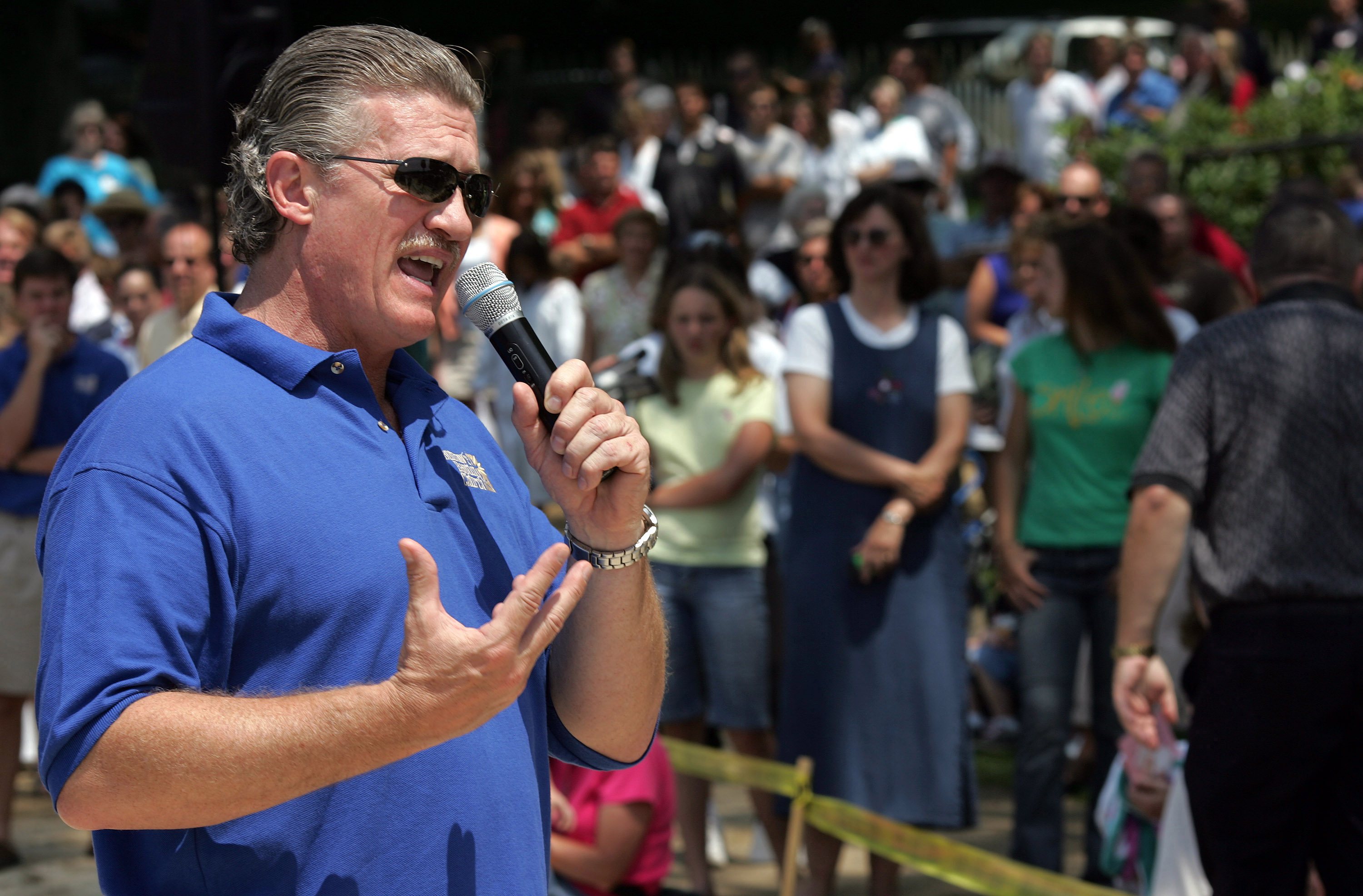
ASHEVILLE, N.C. (BP)–When Biltmore Baptist Church began expansion plans in 1998, pastor James Walker asked the congregation how many people they would like to make room for in the new sanctuary.
“We were thinking real big. We thought we’d like to have one that would seat a thousand people,” Tommy Koontz, who served as chairman of the building committee, laughed in a self-deprecating acknowledgement of how small man’s vision is -– compared to what God has in mind.
Biltmore Baptist Church, near Asheville in western North Carolina’s Blue Ridge Mountains, draws 4,500 people to worship on Sundays. Koontz, a member since 1943, remembers back to the early 1990s when 175 was the largest gathering the declining and divided century-old church could attract.
Then Walker arrived.
“People say it’s like hanging on to the back of a freight train with your legs flapping in the wind trying to keep up with him,” Koontz, a retired high school principal, said of Walker’s vision and leadership.
“God has been with this man,” Koontz said. “He has changed our church. Revival broke out in our church. He’s a great leader and he knows how to motivate people. He preaches God’s Word. He does not deter from it.”
Prayer and evangelism are what has grown the church, said Walker, who, when he arrived in 1993, started a group of about 15 men to cover the needs of the church in prayer. Today, the prayer ministry of men, women and children, is called “God’s 1,300,” and counting.
“When I got here, there were some things I obviously saw that were of concern to me. But the fact that this church went through such bad times was probably the best thing. They let their guard down. Biltmore wanted help,” Walker said, and more importantly, they wanted the source of that help to be from God.
After a couple of months, Wednesday night prayer meetings for six straight weeks focused on church goals.
“They were ready to make the changes and trust the leadership,” Walker said.
The five priorities the church voted in that first year, which shifted the focus outside the church to the needs of the community, remain its vision today: Praying, reaching, equipping, worship and ministry.
“I had them close their eyes and imagine their dream of what this church looked like five years from now, 10 years from now. The dream was not as big as it actually became,” Walker said.
“Only God can get the glory for what’s going on,” said Carolyn Fuqua, the church’s prayer ministry coordinator.
Fuqua, along with husband of 48 years, Jim, has been a member of the church since 1964. She well remembers the desperation members felt during those years of strife and conflict before Walker came. “When you’re desperate, you pray.”
Now, she said, the church prays proactively and constantly, not just in a crisis. She said Walker’s strict adherence to Scripture and flexibility with innovative programming and visionary leadership has transformed the church into an Acts 1:8 New Testament church, with its focus on meeting the needs of the community and beyond.
“He’s just the most humble pastor and he gives God the glory,” Fuqua said. “He’s a soul-winner. He delegates authority. He had this huge vision and the leadership agreed to follow it. That’s where prayer came in, because everybody was praying toward the same agenda, asking God to cleanse our hearts.” She added that Walker “certainly has the respect of his staff. There’s a team approach.”
Koontz, who was chairman of the pastor search committee which called Walker, said he told the people: “If you don’t want to change and you don’t want to go in a new direction -– if you’re satisfied with the status quo -– don’t vote for this man, because if he comes there’s going to be some changes.”
The only staff member at the church was a part-time secretary, who quit five days after Walker started. Now, with more than 17 associate pastors and four more positions about to be filled, the bustling church employs more than 100 people.
The choir, which once struggled to place more than two dozen in the former choir loft, now is up to 300 on Sunday, inspiring the congregation with a celebration style of contemporary music accompanied by a full orchestra. Some members travel more than an hour and 15 minutes each Sunday to hear Walker preach.
“I can only attest to the fact that I remember what it was like -– how we grew inward and were a graying church -– and the doldrums we went through,” Koontz said. “We were in the valley, about as low in the valley as you can get.”
Now, 180,000 square feet of church facilities sit on a hilltop along the French Broad River. The campus includes an education wing and a popular lunch-time restaurant called Café on the Rock serving to the public, and a bookstore called The Parables.
The land on which the ever-expanding church is perched is a miracle -– something so large that no man could take credit for it, church members say.
Before Walker became pastor, the dwindling church met in the small chapel, which 30 years before was supposed to be temporary quarters until it grew enough to build a proper sanctuary. It was never built and was forgotten as the church later split in half over preaching style, Koontz said, and that’s when attendance dropped to its lowest point of 175.
Within one year of Walker’s arrival, the church outgrew the old chapel, necessitating three Sunday services in the Family Life Center’s gymnasium. It soon became clear the five-acre tract on Hendersonville Road was inadequate for the rapidly growing church membership, so a search began for an affordable 30-acre site.
After months of finding nothing in their price range, a member of the church suggested the committee take a look at a 63-acre site that had been on the market so long, the “For Sale” sign had rotted into a ditch.
Immediately after the church voted unanimously to borrow the $780,000 asking price, Walker rewarded their faithfulness with news that an anonymous donor was buying that land for them. The new church opened in 2000.
Though his office walls are covered with photos of three generations of distinguished preachers in the Walker line before him, it might be surprising to hear him say the last thing he wanted to be growing up was a preacher.
“I was a rebellious preacher’s son,” admitted Walker, who spent most of his youth in Hendersonville, near Asheville, where his father Ian, now on staff at Biltmore working with senior adults, was a preacher.
Then, at 22, he made a commitment to the Lord. He intended to go into business after college but surrendered to the ministry instead, something for which the folks at Biltmore Baptist Church are eternally grateful.
“If somebody had told me, I would have had to laugh,” Fuqua said. “I have to confess, my faith was not that big. I knew God was that big, but I guess I had never seen Him work that big. We prayed that God would do something so big and in such a way that no man could take credit for it. We didn’t know what that looked like, but we knew it would be something that only God would get the glory. And that’s exactly what happened.”
–30–











